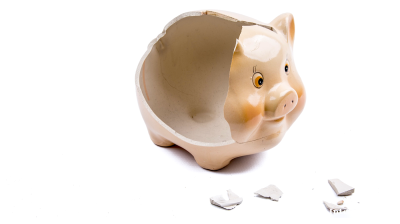One in three (37%) Russians would refuse to take a vaccine against coronavirus (COVID-19) even if one were available, according to a survey conducted by Russia’s Higher School of Economics.
The survey respondents were asked the question: “If a Russian vaccine against coronavirus appears in the coming months, will you be vaccinated?”
Only 16% of respondents said they would be vaccinated immediately. Another 37.7% said they would never do it. Most of the “refuseniks” are from those who do not believe the coronavirus epidemic exists or do not believe vaccinations are effective.
The survey also showed that almost a quarter of respondents (24.2%) generally consider vaccinations to be “harmful” or “rather harmful” to health. Another 58.7% of respondents believe vaccinations are helpful and effective.
Taken all together, the overwhelming majority of those that oppose vaccinations on any grounds and 80.8% of the refuseniks would never take a vaccine if such a vaccine existed.
Russia has had a problem convincing part of its population that the epidemic exists and is not just a concoction by vested interests in pursuit of some ancillary goal. Other admit there is a virus, but do not consider it to be dangerous. From this group three-quarters (73%) said they would never take a vaccine.
The group of “deniers” since the end of May has grown by 0.8 percentage points to 33.6% of the total number of respondents.
The majority of refuseniks also said they would not self-isolate again if there were a second wave of the epidemic.
The refuseniks’ attitudes contrast with the number of Russians that say they have had contact with the virus in the form of someone in their immediate social circles that has contracted the virus. Recent reports say that one in four (28%) Russians now know someone that contracted the virus and this group has doubled in size in the last month alone.
This is due not so much to the spread of the disease, but to the peculiarities of disseminating information from the patients themselves, HSE notes.
This reflects a change in Russian cultural attitudes to reporting illnesses. As a rule, information about a past illness is usually shared with friends and family after the victim has made a full recovery. However, with coronavirus the infected are increasingly sharing this news while they are still suffering from the illness.
The survey found that of the narrow group that deny the coronavirus exists at all, only 20% will refuse to have a vaccine ever.
In general, half (54.4%) of respondents to the survey say in the event of the second wave they will, as before, observe the regime of self-isolation, and another 4.5% will do it even more strictly.
It is important to note that the epidemic has greatly changed the ordinary life of Russians. So 5.7% of respondents said that they will never be able to return to their usual way of life, 26.8% expect to remove all restrictions in order to return to their usual way of life. And 34.5% of respondents monitor changes in the statistics of the number of infections and the total number of patients and will be guided by these numbers to return to their usual way of life.
News

GoviEx, Niger extend arbitration pause on Madaouela uranium project valued at $376mn
Madaouela is among the world’s largest uranium resources, with measured and indicated resources of 100mn pounds of U₃O₈ and a post-tax net present value of $376mn at a uranium price of $80 per pound.

Brazil’s Supreme Court jails Bolsonaro for 27 years over coup plot
Brazil’s Supreme Court has sentenced former president Jair Bolsonaro to 27 years and three months in prison after convicting him of attempting to overturn the result of the country’s 2022 election.

Iran cleric says disputed islands belong to Tehran, not UAE
Iran's Friday prayer leader reaffirms claim to disputed UAE islands whilst warning against Hezbollah disarmament as threat to Islamic world security.

Kremlin puts Russia-Ukraine ceasefire talks on hold
\Negotiation channels between Russia and Ukraine remain formally open but the Kremlin has put talks on hold, as prospects for renewed diplomatic engagement appear remote. Presidential spokesman Dmitry Peskov said on September 12, Vedomosti reports.



